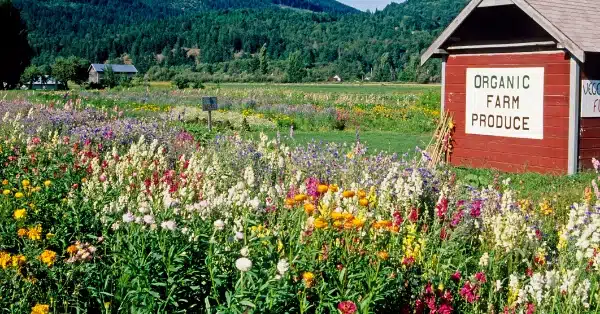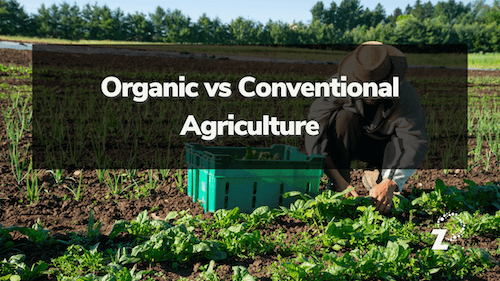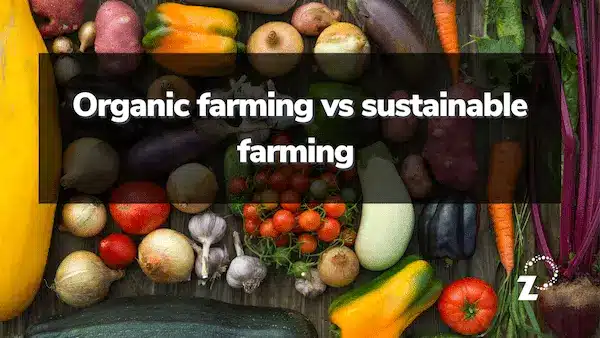Organic Farming in South Africa
What’s In Our Organic Farming Guide?
- Introduction: organic farming in South Africa
- What is organic farming?
- Organic farming certification in South Africa
- The history of organic farming
- Why do we need organic farming in South Africa?
- The benefits of organic farming
- Organic agriculture challenges
- Organic farming methods
- How to start farming organically
- Conclusion

Improving soil health using sustainable soil health practices and soil health products is the only way to feed future generations.
Introduction: Organic Farming In South Africa
$100 billion
3.2 million
1.2 million
The rise in organic production over the last two decades has largely been driven by changing consumer preferences towards healthier and more environmentally-friendly choices.
How many organic farms are there in South Africa?
There are about 250 certified organic commercial farms in South Africa.
In 1999, just 35 farms gained organic certification in South Africa. By 2000, this number increased to about 150. According to estimates from Grolink, the number of certified organic farms grew to 240 farms with a total area of 43 620 hectares in 2002.
In Africa, South Africa has the third largest area under organic farming (50,000ha) behind Tunisia (154,793ha) and Uganda (88,439ha). Approximately 20% of the total area under certified organic farming in Africa is in South Africa.
In contrast with other Sub-Saharan countries, South Africa has a substantial domestic market and local demand for organic products, along with access to the export market in Europe and the USA.
Along with certified organic producers, South Africa is also home to hundreds of non-certified farmers (generally small-scale farmers) who follow organic principles and market their products informally through local villages or farmers markets.
Certified organic produce in South Africa started with mangoes, avocadoes, herbs, spices, rooibos tea and vegetables. South Africa now produces a much wider range of products, including organic olive oil, wine and dairy products. gained
What Is Organic Farming?
ORGANIC FARMING AVOIDS
- Texture
- Depth
- Density
- Nutrient holding capacity
ORGANIC FARMING PROMOTES
- Water infiltration
- Water holding capacity
- Amount of organic matter
- Respiration.
Organic Farming Certification In South Africa
The History of Organic Farming
Why Do We Need Organic Farming In South Africa?
385 million
30%
The Benefits of Organic Farming
The adoption of organic farming methods benefits soil health, water consumption, climate change and helps farmers increase their yields and profits. Rather than relying on expensive and harmful chemical inputs which damage the environment and lead to diminishing returns, organic farming methodology focuses on using scientific knowledge and harnessing natural processes.
The health benefits of organic produce
Consuming products contaminated by harmful pesticides carries a range of human health hazards, including increased risks of cancer, reproductive problems and neurological damage. Organic produce, on the other hand, has higher vitamin and mineral content, is free of chemical residues and is usually more flavoursome too.
Since the adoption of chemical inputs in the 1930s, we know that the concentration of essential minerals such as calcium and iron has been decreasing in fresh produce. A meta-analysis of 343 peer-reviewed publications focusing on the quality of organic vs chemically produced food found “statistically significant and meaningful differences in composition between organic and non-organic crops/crop-based foods.”
The environmental benefits of organic farming
Organic farming methodology promotes a range of environmental benefits, including:
- Improving soil and water quality
- Promoting pest regulation
- Reducing exposure to pesticides
- Protecting biodiversity
- Enhancing nutrient recycling mechanisms
- Providing a regular supply of organic matter
Feeding the future
With an exclusive focus on productivity, our current global food system is rife with inefficiencies and imbalances. We’re producing enough calories, but they’re not necessarily reaching the right people in the right places.
With organic farming economics, organic agriculture could help to alleviate the number of people suffering from hunger, especially in developing countries. Diversification of production is a basic principle of organic agriculture. This can contribute to the improvement of food security and improvements in nutritional levels in rural communities. In addition, the expanding market for organic products globally provides opportunities for smallholder farmers in developing countries, helping them to access new markets and trigger rural development.
Accessibility
Organic farming is more readily adaptable to poor or emerging farmers who cannot easily access the costly external inputs and high-tech training inherent in commercial farming. It can also be more labour-intensive, which increases community impact through job creation.
Organic Agriculture Challenges
Organic Farming Methods
The holistic organic farming methodology refers to creating ecological balance within a farming system. Soil health is promoted through the use of natural compost, crop rotation, cover crops, minimum tillage and mulching. The goal is to value biodiversity and avoid synthetic chemical inputs.
The organic farmer views pests and diseases as a sign of imbalance in the soil’s health and fertility. Rather than applying inputs to address the symptoms, the farmer will look to build the plant’s natural resistance through nutrition.
When it comes to livestock farming, organic meat suppliers are required to treat animals humanely and allow them to mature naturally. They also graze naturally in a free-range environment, with the organic farm producing 90% of the feed. This results in high-quality meat that is free from contaminants and additives such as chemicals, antibiotics and hormones.
Organic farming methods include:
Crop rotation
Crop rotation means alternating between different crops on the same piece of land. This helps to diversify the microorganisms in the soil and reduce soil erosion. Crop rotation also breaks the life cycles of several insect pests, diseases and weeds.
Green weed management
One of the key principles of organic farming is avoiding the use of chemical herbicides and pesticides. This can be achieved through mulching (covering the soil between plants), which also limits evaporation and therefore uses less water. Green weed management also includes using natural predators and sprays to kill weeds and pests.
Cover crops
A cover crop is a crop that is planted to primarily reduce the amount of soil erosion that a farm experiences. The types of cover crops that are popular include legumes, grasses and brassicas. These crops help to suppress weeds, build productive soil, and help control pests and diseases. They are easy to maintain and can be replanted when the new planting season begins.
Agroforestry systems
In an agroforestry system, trees are grown together with annual crops and animals. This results in greater complementary relations between agricultural components.
Farming indigenous crops
Choosing indigenous crops can be more environmentally friendly, as fewer resources are required to produce maximum yields. This enhances food security amid lowering rainfall and other challenges.
Intercropping
This transitional farming method uses complementary crops to increase organic matter in the soil, improve biodiversity, maintain soil moisture and reduce soil temperature.
Minimum tillage
Minimising tillage means less soil disturbance, maintaining the nutrients, biodiversity and integrity of the soil.
How To Start Farming Organically
Conclusion
Organic agriculture has an important role to play in the long-term transition to a more sustainable way of feeding the planet. It is suitable not only for large-scale commercial operations, but also for smallholder farmers.
Organic produce also responds to consumers’ growing demands for higher food quality and better food production methods that cause less damage to the environment. This is a key driver for the growing organic food market.
Yet the potential market for organic agriculture in South Africa is still largely untapped and needs to be realised with organised interventions on various fronts.
Want to harness the opportunity and learn more about organic farming in South Africa? Get in touch with the team.


